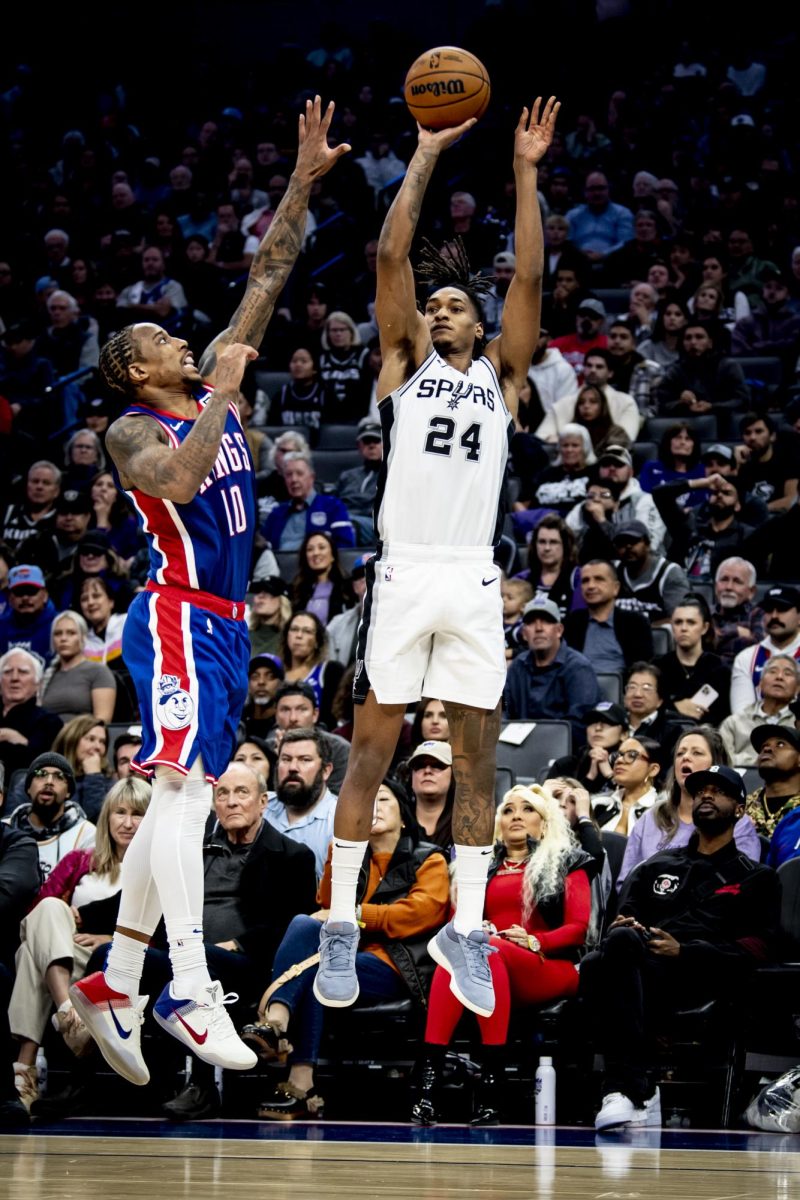For many students, intramural sports, or IMs, serve as a way to play a sport for fun, stay in shape or get a good game in with friends. However, for years these students found themselves being disappointed the Trinity IM system, leading to the recent student government case.
“For me, IMs just seemed poorly run, like no one actually cared about them. Some of it was definitely things that the athletic department couldn’t control, but also sometimes it seemed like the referees weren’t ready to ref the sport, or the game itself was just hectic. Intramurals are really fun, but I definitely feel like there is room for improvement in how they are run,” said senior Natalie Belew.
Belew was not alone in her feelings, the SGA set up a board to investigate the situation after multiple students and SGA senators brought forward similar complaints,. While there were multiple complaints, such as problematic spending on backpacks or doo rags, the primary discussion revolved around how the sports are run.
“Essentially, the discussion revolved around current complaints from students about Intramural sports, and how to address them. Funding or spending money was not really discussed. We came in there hoping to establish an open dialogue between SGA and the athletic administration, and I think that was definitely accomplished. Now we can relay student opinions and complaints directly to the athletic director and whatever the issue is will be resolved swiftly,” said Christopher Garcia, SGA board member.
During the meeting, the SGA board and the athletic department sat down and went through the list of complaints that had been brought forward concerning how intramurals were run. The athletic department was receptive to student concerns and seems willing make changes.
“The meeting that was held went really smooth, and we’re looking forward to further developments,” Garcia said. “I think that the athletic administration is wholly aware of the student interest at hand, and will strive to make sure those interests are being met.”
One proposition brought forward was the idea to get more people working with intramurals so there would be less oversight due to overextension. The previous IM coordinator, Caroline Keener, was involved with not only intramurals, but also OREC, physical education, Title Nine, club sports and Campus Wellness, leading to a need to hire someone else to help.
Recently the Trinity athletic department hired Joseph Shotland. Shotland has been working for the Trinity Intramural department since 2010, where he began as a student worker. In 2016 he accepted a job as the women’s assistant basketball coach, and now the position of IM coordinator. Shotland hopes to fix some student concerns through ensuring referees are well trained.
“We understand that at times Intramurals can look and feel hectic. We’re always trying to improve and I think that’s why I was hired. Not because I have any revolutionary ideas, but because most of the time with something like IM’s you just need an extra set of eyes or hands to help out,” Shotland said. “Besides the forfeits that we’ve had this year, we have training for all of our employees, so while there are always going to be more experienced and less experienced refs, we’ve tried our best to get them the training they need. And one of the things we go over at captain’s meetings, which are held (and supposed to be mandatory), before each new sport is that our employees are trying their best, but that judgment calls are always going to be tricky. You see it in pro sports all the time in fact. It’s one of the best lessons that IMs taught me was to be more understanding of the demands of an official and how hard it is to make a call in the moment.”
This case has further opened up discussion between IMs and students. Students are now encouraged to be more active with what they want to see in IMs, and should not be scared to approach new ideas during meetings.
“We always appreciate constructive criticism, because we want to make the Intramural department a great experience for students. It’s here for the campus to enjoy,” Shotland said. “We want to make sure that we’re giving the TU student body what they want. If they want different sports “” tennis, water polo, spikeball “” these are all things we’ve thrown out in meetings, we want to know. The biggest thing for me is that we want all of our students to participate.”
How the student body responds to the changes SGA and the athletic department have sought to make remains to be seen. Intramurals have never been overly popular at Trinity, and maybe that will begin to change.






